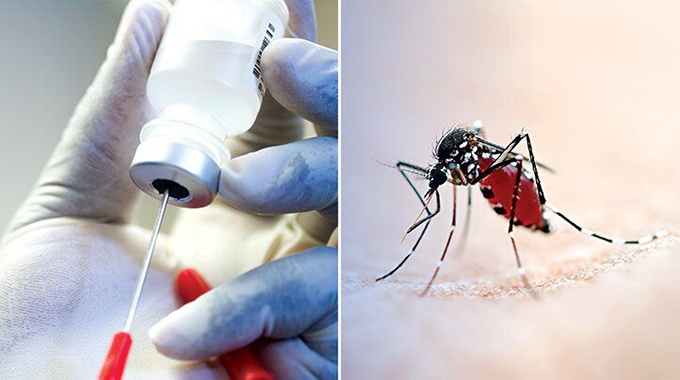COMMENT: Let’s complete the course, malaria is not invincible

Malaria is a frightening disease that over decades, has sickened and killed thousands in mainly hot, dry, low-lying areas of the country.
Visitors to areas along the Zambezi and Limpopo valleys as well as Gokwe in the Midlands had to take precautions against the disease.
They included making sure the first items in their luggage were a mosquito net and repellant. Everything else followed. Residents of the areas were always cautious too. They slept under mosquito nets, used repellants, destroyed mosquito-breeding areas and sought medical attention as soon as they experienced sicknesses associated with malaria.
The disease remains a challenge but on marking World Malaria Day on Sunday, the Government revealed that major strides had been made against it. Malaria cases in the country dropped by 79 percent between 2004 and last year, the Ministry of Health and Child care said, while deaths declined by 42 percent.
This follows the launch of an intensive anti-malaria campaign over the years.
As we report elsewhere today, cases in 2015 stood at 29 per 1 000 people but went down to 22 per 1 000 people in 2019 whereas deaths went down from 462 in 2015 to 192 in 2018.
About two thirds of the deaths are children under the age of five and the disease is said to kill one child every two minutes globally.
“Zimbabwe joined the rest of the world in celebrating World Malaria Day on Sunday. The country has achieved a 79 percent reduction in malaria cases and 42 percent in deaths between 2004 and 2020,” said the Ministry of Health and Child Care in a statement marking the day.
“Zero malaria deaths are possible and they start with you as malaria remains a preventable and treatable disease. Everybody is urged to combine efforts in fighting the disease which remains deadly even during Covid-19.”
With so much progress recorded, the country looks to be on the way to eliminating malaria in the next few years. The precautions that have resulted in the gains we celebrate today must be adhered to, even enhanced if the goal of eliminating malaria is to be achieved.
That means that people in malarial zones and visitors to those areas are encouraged to remain vigilant. As they have always done, they must use mosquito nets appropriately, all the time; the same for repellants.
They must tidy up their immediate surroundings, in that way, removing hiding places for malaria-spreading mosquitoes. In the event that they get sick, they must immediately seek medical attention at their local health facilities that we know have experience in treating the disease.
The Government has done extremely well, working with its partners through the residual spraying campaigns that are run every year in malarial zones. These have helped destroy mosquitoes before they cause damage.
The time has not yet come for the activities to be halted. Instead, the Government and its partners must keep the course so that malaria cases continue to decline, only stopping the outdoor spraying activities when the disease would have been defeated.
Information dissemination, provision of medicines, nets and other provisions to fight malaria are the responsibility of the Government.
Supplies need to be maintained in the areas where they are needed.
Yes, malaria has caused the death of thousands of citizens over the years and caused so much morbidity, but the progress that the country has achieved over the past 15 or so years gives us the hope that we will soon eliminate the disease just as some countries elsewhere on the globe have done.










Comments